TODAY’S READING FROM THE OLD TESTAMENT- EZRA 7:1-8:20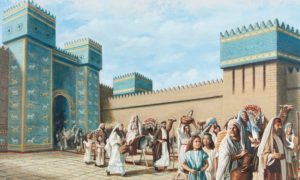
There is a gap of approximately 60 years between Ezra Chapter 6 and Ezra Chapter 7 during which Xerxes, the son of Darius, becomes King and the events recorded in the Book of Esther take place.
Xerxes ruled from 486 to 465 B.C. when he is assassinated by Artabanus, the commander of the royal bodyguard. He is succeeded by Artaxerxes, his son, under whose reign, Ezra returned to Jerusalem in 458, 40 years after the first remnant returned under Zerubbabel. Ezra would lead his contingent back to Jerusalem 20 years after Esther became Queen.
The temple had been completed in 516 BC. By the time of Ezra’s appearing on the scene, the temple had been standing for 58 years.
Ezra wanted to lead as many as possible back to Jerusalem, therefore he needed an official decree from the King of Persia. That official sanction was very important for them to have, especially as they were questioned and attacked by enemies.
Ezra, a scribe descending from Aaron the high priest, was well versed in the law of Moses, and the gracious hand of the Lord was upon him. He had determined to study and obey and teach the Word of God to the people of Israel (Ezra 7:10).
As with his predecessors, Achaemenid kings Cyrus and Darius, Artaxerxes commands his treasurers to provide whatever is needed for the work of the temple.
The Chronicler includes a copy of Artaxerxes official letter granting permission and resources for Ezra’s mission and the worship of the God of Israel at their temple in Jerusalem (Ezra 7:12-26). Ezra is also officially commissioned to teach, interpret, and uphold the law of God and the Emperor (7:26). He is also authorized by the Persian king to appoint governing officers for all the land West of the Euphrates River.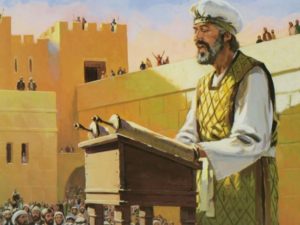
Ezra writes in the first person beginning with verse 27. What follows is what is known as Ezra’s Memoir. He acknowledges God’s sovereign hand giving him such favor from the King of Persia.
He lists those who join him in his return from Babylon to Jerusalem.
Notice the shortage of Levites once again-
Ezra 8:15 15 Now I assembled them at the river that runs to Ahava, where we camped for three days; and when I observed the people and the priests, I did not find any Levites there.
Jesus had difficulty recruiting those from successful lifestyles- those who were happily married and made business and real estate investments. This is why there is a shortage of laborers.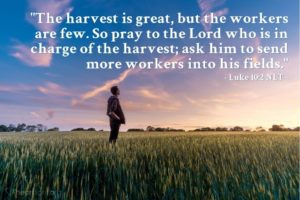
Luke 10:2 2 And He was saying to them, “The harvest is plentiful, but the laborers are few; therefore beseech the Lord of the harvest to send out laborers into His harvest.
Ezra has his prayers for Levites answered. “Because of the gracious hand of our God was on us, they brought us Sherebiah, a capable man from the descendants of Mahli, son of Levi” and other family members (Ezra 8:18).
Many of those in Ezra’s remnant were related to those who had returned with Zerubbabel.
Warren Wiersbe points out that the pioneering spirit seems to run in families.
Ezra is thankful for the capable men who made themselves available to join his mission to Jerusalem!
TODAY’S READING FROM THE NEW TESTAMENT – 1 CORINTHIANS 4:1-21
Paul goes on explaining that he and other servants of Christ are fellow-laborers. They are called to be faithful stewards of the gifts and opportunities given by God.
There are some carnal teachers that are encouraging carnal behavior at Corinth. We learn that there, ‘super-apostles’ claimed a superiority to Paul in terms of sophisticated rhetoric, financial prosperity.
The responsibility of the steward is to be faithful to his master. We are not to measure a man by natural standards but by their faithfulness to Christ.
Paul knows that it is not the judgments of men (1 Cor 4:3a), or even our own judgments (1 Cor 4:3b), but the judgment of God that matters. It is good to be daily subject to the judgment of God’s Word (Heb 4:12), and to live your life in such a way as not be ashamed at the Bema Seat Judgment of Believers’ Works (Romans 14:10; 1 Cor 3:10-15; 2 Cor 5:10).
The apostle Paul is an exemplary disciple-maker. He is more than an instructor to those in his circle, he is a father. He takes responsibility for his disciples, as a father takes responsibility for his family. He also trains them to become disciple-making missionaries themselves. Paul founded the church family in Corinth. He provided pastoral care and Biblical teaching. He shared his life with them and lived in an exemplary fashion.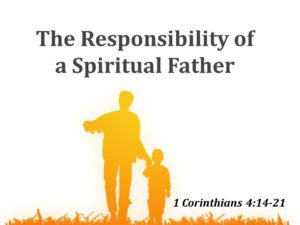
Those in his care did not feel like orphans. They felt like they belonged and were blessed to be together with family.
Where are the spiritual fathers today?
1 Corinthians 4:14-17 14 I do not write these things to shame you, but to admonish you as my beloved children. 15 For if you were to have countless tutors in Christ, yet you would not have many fathers, for in Christ Jesus I became your father through the gospel. 16 Therefore I exhort you, be imitators of me. 17 For this reason I have sent to you Timothy, who is my beloved and faithful child in the Lord, and he will remind you of my ways which are in Christ, just as I teach everywhere in every church.
Paul never had anyone call him ‘father’, for that would be contrary to Jesus’ teaching. But there are quite a few whom we read about in the New Testament that Paul considered his children or sons in the faith, and there are those who considered Paul as their spiritual father.
Tutors or guardians were hired slaves. Paul saw his role as being more than a hired servant or an official caretaker. He had the best interests of the church at heart and the same kind of affection that a father has for his own children.
TODAY’S READING FROM THE BOOK OF PSALMS- PSALM 30:1-12
The Psalmist addresses the Lord and his fellow-worshipers in this wonderful psalm of thanksgiving.
The Psalmist expresses:
- A PERSONAL RESOLVE. He determines to exalt the Lord for the gift of salvation (Psalm 30:1-3).

The Lord rescued him. He lifted him up out of the depths (v.1).
The Lord answered prayer, helping and healing him (v.2).
The Lord delivers him from death (v.3).
- A BROTHERLY EXHORTATION. This is an exhortation for God’s people to sing of His sure mercies (Psalm 30:4-5).
His anger lasts momentarily; His favor to the saints that belong to Him, lasts for a lifetime. Our afflictions are temporal and profitable. Joy comes in the morning!
- A SOLID TRUTH- Faith, in order to be secure, must be anchored in the perfect person and work of Christ and not in our circumstances or condition. (Psalm 30:6-7)
We get dismayed if we walk by sight and trust in our own merits rather than walk by faith and trust in the merits of our Savior.
- A REDEMPTIVE REQUEST- He offers a prayer request for an ongoing experience of God’s mercy so that his time on earth can be redeemed (Psalm 30:8-10).
- A TESTIMONY – Think of what the Lord has done for you! He turned your mourning into dancing and removed your sackcloth and clothed you with joy.
Has your heart been released to give thanks today, or has it remained silent?
TODAY’S READING FROM THE BOOK OF PROVERBS- PROVERBS 20:28-30
Proverbs 20:28-30 28 Loyalty and truth preserve the king, and he upholds his throne by righteousness. 29 The glory of young men is their strength, And the honor of old men is their gray hair. 30 Stripes that wound scour away evil, and strokes reach the innermost parts.
A virtuous character will have an enduring influence if it is based on God’s righteousness. The advantage of youth is greater physical strength. The advantage of old men is wisdom gained from experience.
PRAY FOR THE NATIONS- PUERTO RICO
Puerto Rico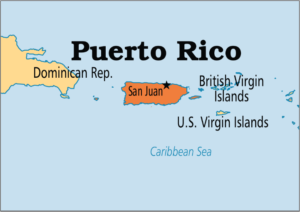
Commonwealth of Puerto Rico
Caribbean
Geography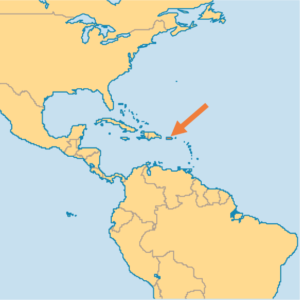
Area: 9,104 sq. km
Greater Antilles, between Dominican Republic and the Virgin Islands.
Population: 3,998,010 Annual Growth: 0.43%
Capital: San Juan
Urbanites: 97.6%
Peoples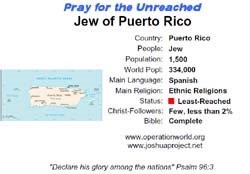
Peoples: 15 (7% unreached) All peoples
Unreached Peoples Prayer Card
Official language: Spanish; English Languages: 13 All languages
Religion
Largest Religion: Christian
|
Religion |
|
Pop % |
Ann Gr |
|
3,809,304 |
95.28 |
0.1 |
|
|
1,007,520 |
25.2 |
2.2 |
Challenges for Prayer
The issue of Puerto Rico’s political identity divided the nation in the past. Independence, US statehood or the current arrangement of commonwealth are all options, but most people now seem content with the status quo. Many are concerned with the increasing Americanization of government. The biggest problem may be, however, the high levels of corruption that plague local government. Pray for wise governance that works for the best interests of the islands’ inhabitants.
Puerto Rico is traditionally Catholic, but evangelicals have grown steadily from 0.1% in 1900 to 25.2 % in 2010, with some claiming even higher. A strong majority of evangelicals are renewalist in theology. A host of small indigenous groups, mostly neo-Pentecostal and charismatic, accounts for the majority of denominations and churches, and this is where most growth is currently happening. There is also a large charismatic movement in the Catholic Church, which is otherwise in marked decline. Sadly, the churches make little impact on the many social needs of the nation.
PRAYER: Father, thank You for the gift of Your Word. We ask for the grace to be able to not just hear it, but to apply it to our daily lives. We look to You for Your provisions to resource our mission, as those commissioned by Your Son to make disciples. We ask that You open doors for us to share the gospel and send forth more laborers into Your global harvest. We ask that You stir up those who may be lazy or stuck in false comforts and put it on their hearts to join You in this enterprise. We are grateful to be co-laborers with You in making Christ known. Give us Your heart that we may know Your affection for those whom You are drawing to Your Son and invest in their lives accordingly. In Jesus’ Name. Amen.
